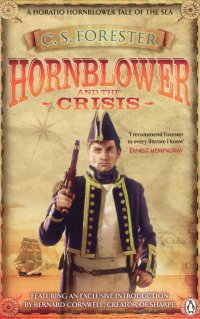 It seems like I just read a Hornblower or O’Brian book, but I might have been thinking of Sharpe’s Trafalgar which mostly took place at sea and which I just read in January 2024. The last Hornblower title I read was Beat to Quarters in 2017, although I did pick up two last year: Lieutenant Hornblower at the Friends of the Springfield-Greene County Library book sale in April and this book at the Friends of the Christian County Library book sale in June. So maybe that makes for why it seems fresh; after your first half century, anything in the last decade is just.
It seems like I just read a Hornblower or O’Brian book, but I might have been thinking of Sharpe’s Trafalgar which mostly took place at sea and which I just read in January 2024. The last Hornblower title I read was Beat to Quarters in 2017, although I did pick up two last year: Lieutenant Hornblower at the Friends of the Springfield-Greene County Library book sale in April and this book at the Friends of the Christian County Library book sale in June. So maybe that makes for why it seems fresh; after your first half century, anything in the last decade is just.
This posthumous collection is not actually a full novel; it has the incomplete novel Forester was working on when he passed away and two short stories in it. In Hornblower and the Crisis, Hornblower is between ships and helps to seize a French ship that spotted and pursued the little hoy he was taking back to port from the Hotspur, his previous command. He manages to capture the captain’s papers and return them to London, including an official dispatch from Boney, who has just made himself emperor. When conferring with the Lordships, he blurts out a plan to deliver forged orders for the French fleet to sail out, and they put him on the mission since he has some experience with the land area in which the operation will need to be conducted. And as he is about to become a spy, Forester dies, so we get a summary of the notes left behind. “Hornblower and the Widow McCool” explains how an Irish rebel is captured amongst French forces, and he asks Hornblower to deliver his sea chest to his widow. Hornblower suspects something is up and discovers the secret of the rebel’s last poem for his wife. “The Last Encounter” tells the story of an elderly Hornblower at his estate when a seeming madman arrives, thinking he’s Bonaparte. He is about to dismiss him when his wife (a different wife than in Hornblower and the Crisis, I note) intercedes and helps him on his way; later, they receive a thank-you note from Louis Napoleon Bonaparte who has established himself as ruler of France.
This 158 page Penguin book was a far quicker read than Shōgun for sure (but both historical paperbacks set but about two hundred years or so apart). It’s too big for the new mass market paperback shelf in my office which I have the inclination to fill by reading a bunch of paperbacks. But not big paperbacks like this.
Also, I did flag something in “The Last Encounter”:
The stranger made a low bow, and advancing, took Barbara’s hand and stooped low over it again to kiss it. Barbara was woman enough to be susceptible to a kise on the hand–and any rascal could find his way into her good graces if he could perform that outlandish ceremony in the right way.
Time for a Coffee House MemoryTM:
In 1996 or thereabouts, I remember a trio of Austrian au pairs (although the Germans and their cousins might have their own word for it, as au pair is clearly French and hence the enemy (at least in the context of this book–in modern times, the French are not even French)). A blonde and two brunettes; I can only remember the name of Marlena, which was one of the two brunettes and not even the one I thought was prettiest. They showed up at the Grind late at night, probably after the children they were responsible were in bed, and they drank coffee until some of the other expats (Indian or Pakistani, back when that was still a bit exotic) would invite them to go to the clubs, most likely Velvet (see also The Various Clubs I Have Attended from 2019), and they would dance and whatnot and somehow be up to take care of their charges in the morning. We were all young then and could do stuff like that–it was before my print shop days, when I was still working retail and might not have had to work until afternoons sometimes. I do remember that months later that the brunette whom I thought to be the prettiest was looking a little ragged.
At any rate, on the night that my friend Scott (he’s still alive, which puts him far ahead of many of my friends from the middle 1990s) introduced me to the three, I bowed and kissed their hands in turn. The blonde was quite miffed about it and recoiled whilst I did it, and throughout the evening, I understand she kept returning it and asking Scott why I did it.
Clearly, I did not perform that outlandish ceremony the right way.
So, back to the book. More to my taste than O’Brian and even Cornwell when you get down to it because the language is punchier and although it does talk about elements of naval warfare and operation, it does not go to the distance where you think that the author just wants to show off his research.
So I’m hoping I can find Lieutenant Hornblower sometime in the near future. And when you get past your first half century, you’re comfortable that “near future” might be nine years from now (should I live that long–most of my matrilineal side did not).


